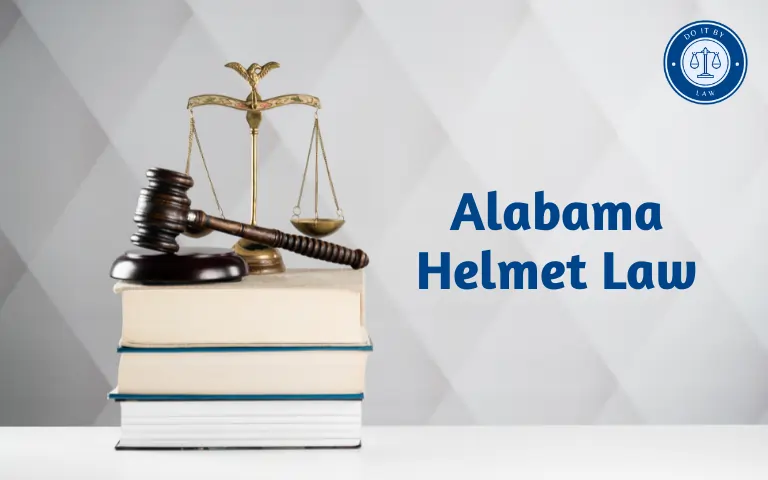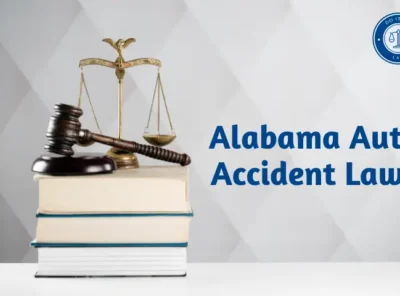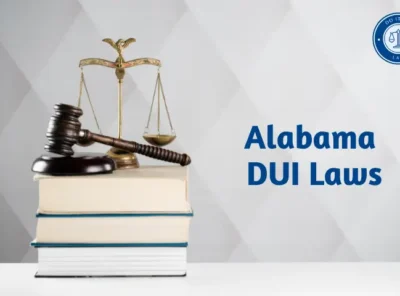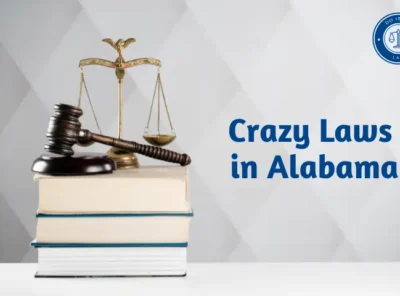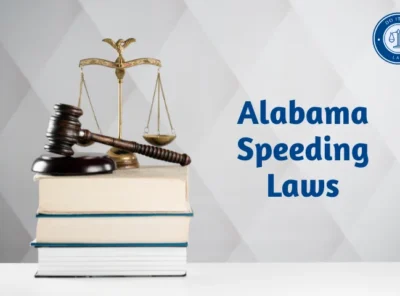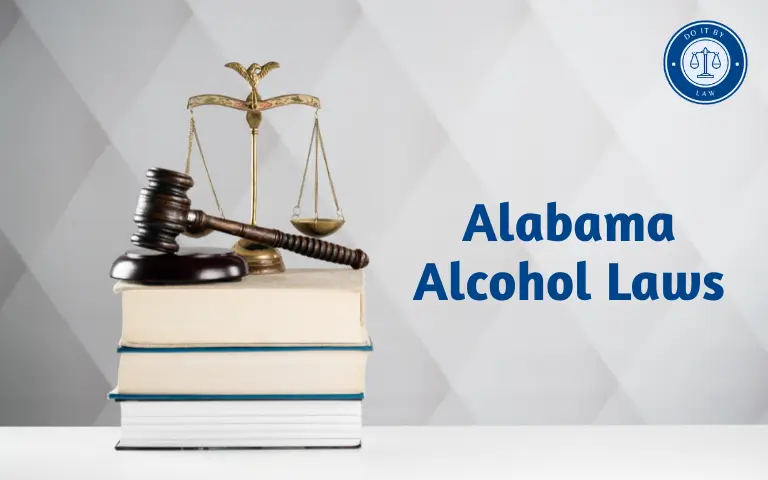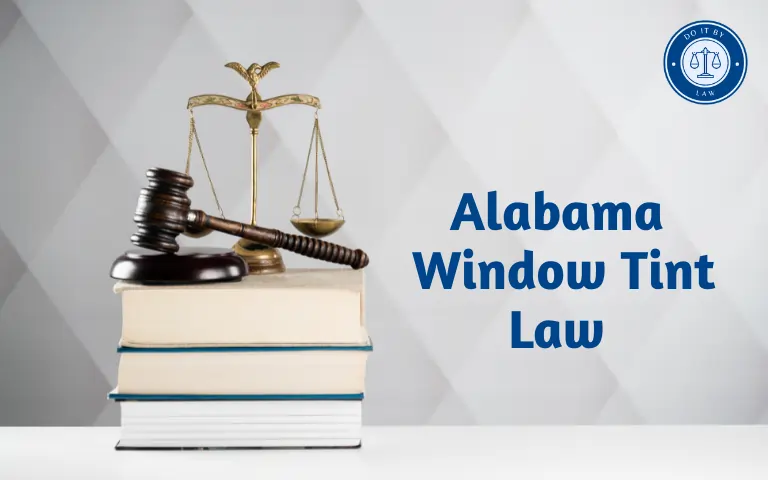Alabama Helmet Law: What You Need to Know
Alabama does have a universal helmet law requiring riders of all ages to wear approved helmets when operating or riding on motorcycles, mopeds, ATVs, and certain other vehicles. This article provides an overview of Alabama helmet law for motorcycle and all-terrain vehicle (ATV) helmet law, including its key provisions, applicability, history, enforcement, and debates.
Alabama helmet law, established in 1986, prioritizes rider safety. Statistics show helmets significantly reduce the risk of head injuries in motorcycle accidents. By making helmets mandatory, the state aims to protect riders and minimize healthcare costs associated with preventable injuries.
When Alabama Helmet Law Was Enacted and Why It Exists
The wind whipping through your hair, the sun on your face – these are the joys of riding a motorcycle. But in Alabama, enjoying these sensations comes with a crucial responsibility: wearing a helmet. Let’s dive into the why and when of Alabama’s helmet law, a piece of legislation that has saved countless lives on the open road.
1969: A Gentle Suggestion
The story begins in 1969, when Alabama first enacted a helmet law. Back then, it wasn’t a strict mandate, but rather a nudge towards safety. The law encouraged riders to wear helmets, but it didn’t carry any penalties for non-compliance.
1986: Buckling Up for Safety
However, the tide turned in 1986. Recognizing the grim reality of motorcycle accident statistics, Alabama upped the ante. The helmet law became mandatory, requiring all riders and passengers on motorcycles and mopeds to wear DOT-approved helmets. This shift in policy prioritized safety, aiming to:
- Reduce head injuries: Studies consistently show that helmets significantly decrease the risk of head injuries in motorcycle accidents. By making them mandatory, Alabama aimed to protect riders and minimize the burden of preventable injuries on the healthcare system.
- Promote responsible riding: The law encourages riders to take their safety seriously and demonstrates a commitment to creating safer roads for everyone.
Alabama helmet law might seem like an inconvenience at times, but it’s a small price to pay for the peace of mind and protection it offers. Remember, the open road should be a place of enjoyment, not regret. So, buckle up, strap on your helmet, and ride responsibly, knowing you’re doing your part to make Alabama’s roads safer for everyone.
By understanding the history and purpose of the helmet law, you can make informed choices on the road and contribute to a safer riding environment for yourself and others.
Who Alabama Helmet Law Applies To
Alabama helmet law applies to all riders and operators of the following vehicles on public streets, roads, and property:
- Riders: Every single person piloting a motorcycle or moped, regardless of age, experience, or destination, needs a helmet. No solo riders get a pass!
- Passengers: Your riding buddy isn’t exempt from the helmet rule either. Every passenger, no matter how short the trip, needs their own protective dome.
- Types of Motorcycles and Mopeds: All motorcycles and mopeds, regardless of engine size or power, fall under the law’s jurisdiction. So, whether you’re cruising on a Harley or zipping around on a Vespa, a helmet is mandatory.
The law requires proper helmet usage by both operators and passengers. There are limited exceptions allowing helmet-free riding for enclosed cab vehicles and on private property under certain conditions.
The only exception to the Alabama helmet law applies to individuals operating enclosed cabins or passenger compartments on motorcycles. Think of it as a built-in helmet for the whole vehicle!
Key Provisions of Alabama Helmet Law
Alabama helmet law isn’t just a suggestion; it’s a crucial piece of legislation designed to keep riders safe on the open road. So, before you cruise down those Crimson Tide highways, buckle up and get familiar with the key provisions that govern your headgear:
1. Mandatory for All: Whether you’re a seasoned biker or a weekend warrior, the helmet law applies to all riders and passengers on motorcycles and mopeds on public roads. Age, experience, and destination don’t matter – everyone needs a protective dome.
2. DOT-Approved Only: Don’t settle for a space helmet or your grandpa’s bucket! The law requires helmets to be DOT-approved, meaning they meet specific safety standards for impact absorption and penetration resistance. Look for the DOT seal on your helmet to ensure it’s up to snuff.
3. Secure Fit is Essential: A helmet floating around on your head is no better than no helmet at all. Ensure a snug and secure fit by properly fastening the chin strap. It should be tight enough that you can’t fit two fingers under it, but comfortable enough not to feel like a vice.
4. Passengers Included: Your riding buddy isn’t exempt from helmet safety. The law requires every passenger, regardless of the trip length, to wear a DOT-approved helmet. Remember, even a short ride can turn into a tragedy without proper protection.
5. No Exceptions, Mostly: While most motorcycles and mopeds fall under the law’s jurisdiction, there’s one exception: individuals operating enclosed cabins or passenger compartments on motorcycles. Think of it as a built-in helmet for the whole vehicle!
6. Penalties for Non-Compliance: Violating the helmet law can turn a scenic ride into a costly headache. A first offense carries a $75 fine, while subsequent violations can lead to higher fines and even jail time. Don’t let your head pay the price for ignoring the rules.
7. Stay Informed: The law is subject to change, so it’s crucial to stay informed about any updates or proposed modifications. Visit the official Alabama state law website or reputable motorcycle safety resources to keep your knowledge up to date.
Bonus Tip: Check out the Alabama Department of Transportation’s website for additional resources on motorcycle safety and helmet selection.
Alabama Moped Laws
Alabama’ roads are buzzing with both motorcycles and mopeds, and while both offer a taste of freedom on two wheels, their legal requirements differ slightly. When it comes to helmets, the key question is: do moped riders and passengers need to wear helmets in Alabama? Buckle up, because we’re about to steer you through the clear lanes of Alabama moped helmet laws.
Yes, Alabama’s helmet law applies to moped riders and passengers. Just like their motorcycle counterparts, anyone operating or riding on a moped on public roads must wear a DOT-approved helmet.
The helmet requirements for moped riders in Alabama:
- Mopeds Defined: Alabama defines a moped as a motor-driven cycle with an engine that doesn’t exceed 50 cubic centimeters piston displacement and a maximum speed of 25 miles per hour on level paved roads. So, if your two-wheeled friend falls within these parameters, the helmet law applies.
- DOT-Approved Helmets: Just like motorcycle helmets, moped helmets must also bear the DOT seal of approval, ensuring they meet safety standards for impact absorption and penetration resistance. Don’t settle for anything less for your precious melon!
- Secure Fit is Crucial: As with motorcycle helmets, a snug and secure fit is essential. Ensure the chin strap is properly fastened to prevent the helmet from coming loose in an accident. Remember, a loose helmet is no better than no helmet at all.
- Passenger Protection: Your moped riding buddy isn’t exempt from the helmet rule either. Just like the rider, every passenger on a moped must wear a DOT-approved helmet.
In essence, Alabama transportation laws regulate mopeds based on their construction and engine performance to balance public safety considerations with their classification as an affordable alternative to automobiles. Proper licensing, registration, and sober operation are mandatory.
Penalties for Non-Compliance: Violating the moped helmet law can come with consequences, just like with motorcycles. A first offense carries a $75 fine, while subsequent violations can lead to higher fines and even jail time.
Recent Changes Made to Alabama Helmet Law
Some recent legislative developments regarding Alabama helmet law include:
- 2012 law revision clarifying applicability to both operators and passengers
- 2015 legislation authorizing exemptions for secondary private property
- 2016 bill unsuccessfully proposing the repeal of the helmet mandate
- 2018 act requiring safety courses for minors before riding ATVs
- 2022 amendment authorizing helmet exemption for golf carts on designated routes
While the core helmet requirements have remained intact for decades, modifications like these have tweaked applicability and exceptions.
Penalties for Violating Alabama Helmet Law
Alabama takes helmet safety seriously, and violating the helmet law can come with some not-so-pleasant consequences. Here’s a breakdown of the penalties you could face:
First Offense:
- Fine: $75. Ouch! That’s a hefty price tag for a breezy head.
- Court costs and fees: These can vary depending on the court and your location, but expect to add another $20-50 to your fine.
- Points on your driver’s license: Yep, not only does it hurt your wallet, but violating the helmet law can also add points to your license, potentially impacting insurance rates or even leading to suspension.
Subsequent Offenses:
Things get progressively more expensive with each violation:
- Second offense: Fine of $100-200, plus court costs and fees, and potentially more points on your license.
- Third offense: Fine of $200-300, plus court costs and fees, and even more points on your license.
- Fourth and subsequent offenses: Fines can reach $500, along with court costs, fees, and potential license suspension or even jail time (up to 180 days!).
Additional Penalties:
- Impoundment of your motorcycle: In some cases, your motorcycle could be impounded for violating the helmet law, adding towing and storage fees to your already hefty bill.
- Increased insurance rates: Violating traffic laws, including the helmet law, can lead to higher insurance premiums.
Remember:
- These are just general penalties, and the specific amount of your fine and other consequences may vary depending on the circumstances of your violation.
- The goal of the helmet law isn’t to collect fines; it’s to protect your head and prevent serious injuries.
- Wearing a helmet is the simplest way to avoid these penalties and stay safe on the road.
Here are some additional resources:
- Alabama Department of Motor Vehicles website: https://www.revenue.alabama.gov/division/motor-vehicle/
- Alabama state law website: https://law.justia.com/codes/alabama/2022/
Controversies and Debates Surrounding Alabama Helmet Law
Despite saving lives, Alabama’s mandatory helmet usage law has stirred debate including:
- Complaints it infringes on personal liberty and freedom of choice
- Arguments that helmets can increase risk-taking behavior
- Claims it deters tourism from helmet-optional states
- Requests for exemptions for experienced riders 18+
- Disagreements over applicability on private lands
- Disputes over responsibility for passenger compliance
Still, most safety experts view universal helmet laws as a beneficial public policy due to their injury prevention benefits.
Conclusion and Key Takeaways on Alabama Motorcycle Helmet Law
In summary, key points on Alabama motorcycle and ATV helmet law include:
- Enacted in 1967 to improve rider safety by preventing head injuries
- Requires approved helmets for all ages on motorcycles and ATVs
- Applies on public roads, parking areas, trails, etc.
- Provides limited exceptions for enclosed vehicles and private land
- Violations result in fines up to $500 for first offense
- Seen by most as an essential protection, despite some opposition
Alabama’s universal helmet law has succeeded in saving lives by making helmets mandatory safety equipment. Understanding the rules and proper usage is crucial for all riders exploring Alabama’s scenic roads and trails.
Frequently Asked Questions About Alabama Helmet Law
References and Resources on Alabama Helmet Law
Alabama Motorcycle Helmet Laws – Overview and Statutes
Alabama Highway Safety Office – Motorcycle safety programs
Governor’s Highway Safety Association – Analysis of AL motorcycle laws

